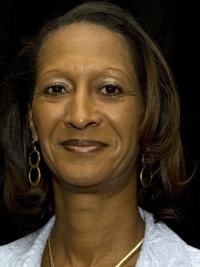PHOENIX — State utility regulators are making another bid to find out how much money the state’s largest electric utility is spending on political campaigns and lobbying.
But this time the outcome could be different.
Arizona Corporation Commissioner Sandra Kennedy proposes to subpoena the records of Arizona Public Service. This comes a year after a judge rejected an effort by Bob Burns, another commission member, to find out how the utility was using its money and influence to elect regulators to its liking.
Maricopa County Superior Court Judge Daniel Kiley said that Burns, as an individual commissioner, did not have the power to enforce subpoenas. But now Burns has an ally in Kennedy.
More significantly, Justin Olson, who was not on the commission when the legal fight first began, told Capitol Media Services on Tuesday he is willing to support enforcing a subpoena if Kennedy and Burns pursue it.
“I’m very supportive of transparency,” Olson said.
APS officials fought an extended battle over the last attempt, making various legal arguments about why APS’ political spending was off limits to commissioners. But, for the moment, the utility is taking a less confrontational approach.
“We will review Commissioner Kennedy’s letter and may have further comment after we fully assess it,” said APS spokeswoman Jenna Rowell.
Kennedy is particularly interested in the donations that APS and Pinnacle West, the utility’s parent company, have given to certain tax-exempt organizations. That’s because federal tax laws allow these organizations to influence elections with campaigns mounted on behalf of or against candidates.
More significantly, Arizona law exempts those organizations from having to disclose their donors.
Two “dark money” groups that fall into that category spent $3.2 million in 2014 to help elect Republicans Tom Forese and Doug Little to the commission.
APS will neither confirm nor deny it was the source of those dollars.
In 2016, the company spent $4 million in the open to help keep the commission an all-Republican panel. In 2018, the utility pretty much stayed out of the commission race, deciding to put $32 million into fighting an initiative that would have required utilities to generate half their power from renewable sources by 2030.
Kennedy said finding out where all that money is going is crucial to the role of the commission in regulating utility rates.
“I think the ratepayers ... have a right to know where the monopoly that they have to get their services (from) is spending their money,” she said.









